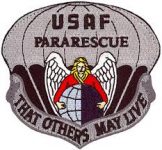One Jot or One Tittle
Have you heard this before? Do you know which Scripture(s) it comes from? Can you perceive its meaning? Are the words even the correct terms to use?
Terms. OK, let’s tackle them first. Jot ¦jat¦ n. § the least bit : IOTA. Tittle ¦ti-tel¦ n. § a tiny part.1 Those are the English definitions. Let’s see what their Greek words and definitions are. Strong’s2 defines them as: Jot = 2503. iwta <1x> iota, ee-o’-tah; of Hebrew origin [the tenth letter of the Hebrew alphabet]; “iota,” the name of the eighth letter of the Greek alphabet, put (fig.) for a very small part of anything; – jot <1x>. Iota is from the Hebrew word “yod,” the smallest Hebrew letter, and is mentioned by the [Master] in Mt. 5:18, together with keraia (2762). Tittle=keraia <2x> keraia, ker-ah-yah; feminine of a presumed derivative of the base 2768 [keras]; something horn-like, i.e. (spec.) the apex of a Hebrew letter (fig. the least particle): – tittle <2x>. Keraia, “a little horn” (keras, “a horn”), was used to denote the small stroke distinguishing one Hebrew letter from another. The rabbis attached great importance to these; hence the significance of the [Master’s] statements in Mt. 5:18 and Lk. 16:17.
Oops, the definitions answered my second question, but that’s alright. By the definitions we see the word jot = iota = yod, the smallest of the letters of both Greek and Hebrew. The word tittle = keraia, the tiniest part of certain letters in Hebrew. Neither one refers to vowel points, cantillation marks, punctuation marks, verse numbers, nor chapter numbers in the Hebrew or Greek, all of which came along years later.
An iota in the Greek alphabet = I, i. This is also the smallest of the letters in our English alphabet and a tittle in our alphabet would be the equivalent to the serifs that you see on these characters of this article. An example of letters without serifs (sans serif) are: Sans serif letters example.
Is it the alphabet and its design that our Master is so concerned about in these verses? Partially yes, but it is not the main emphasis. I’ll get to that in a minute though. So why does the concern for the yod and the little horns (serifs) matter? Take the Hebrew verbs. A lot of them have a yod in front of them in the Bible. This gives them their special context and meaning. ie. The verb “make,” nathan. In the perfect form it means = he made. Add a yod and its meaning changes to = he will make, he will remake, he will be made, or he is done being made (depending on the vowel points). However, the most important part is that the yod is the first letter of the names of both the Father and the Son, YaHVaH and Yahoshua (Yeshua). Remove it and the words change drastically. Remove the little horns (serifs) and you might mistake one Hebrew letter for another and completely misunderstand what it says.
Now the main emphasis of the Master’s statements. He is referring to the Law itself. Not even the smallest commandment (jot=yod) or the tiniest portion of any commandment (tittle) shall pass away from the Law or for it to fail.
Let’s take the Ten Commandments. The smallest of these ten, the yod (jot, iota), is: “Thou shall not kill,” or rather “Thou shall not murder,” is a better translation. Imagine where we would be today if it was lawful to murder anyone, at any time. Of what value would life be or the blood of life?
A tittle in these commandments would be this: We all know that the 4th commandment is “Remember the Shabbath day to sanctify it” Ex. 20:8. But are you aware that in Deut. 5:12, where this commandment is repeated, that Remember is changed to Guard? We are to do both as one. Are you also aware that part of this commandment is “Six days shall you labor and accomplish all your work”? It doesn’t say work on these six days if you want to. It says YOU SHALL LABOR. So much for being lazy, huh! Both of these are examples of the tittle. Tiny parts of the commandment that people tend to look over. Another tittle of that same commandment is “you shall not do any work, you, & your son, & your daughter, & your servant, & your maidservant, & your animal, & your convert within your gates, . . .” Ex. 20:10b. Note, it does not say the commandment refers only to YOU. It refers to your children, your workers, your animals, and anyone of the faith that is within your domain. You are the one responsible for making sure none of the them work. In other words, you can’t have or make anyone around you work just because you can’t work.
From all of this, we can determine that the correct terms are being used, even if they are not fully understood. Variations in the translations could be like :
In relation to English characters: “One i or one serif shall in no wise pass away from the law till all be fulfilled.”
In relation to ultimate meaning: “One of the smallest commands or one of the tiniest parts of the commands shall in no wise pass away from the law till all be fulfilled.”
So be warned, do not skip over the jots (iotas, yods) or the tittles.
Shalom, shalom,
1 Merriam-Webster Dictionary; 2004; New Edition; Merriam-Webster, Inc.; Springfield, MA; p. 394, 750.
2 Strong, James; The New Strong’s Expanded Exhaustive Concordance of the Bible; 2001; Red letter ed.; Thomas Nelson; Nashville, TN; p. 123, 137, Greek Dictionary Section.
Note: fig = figuratively; spec. = specifically
First published 3-2006, © 2006, Odon Obadyah Ministries, Inc. and Min. Dr. Donald H. Garrett
Return to Articles by Min. Garrett







